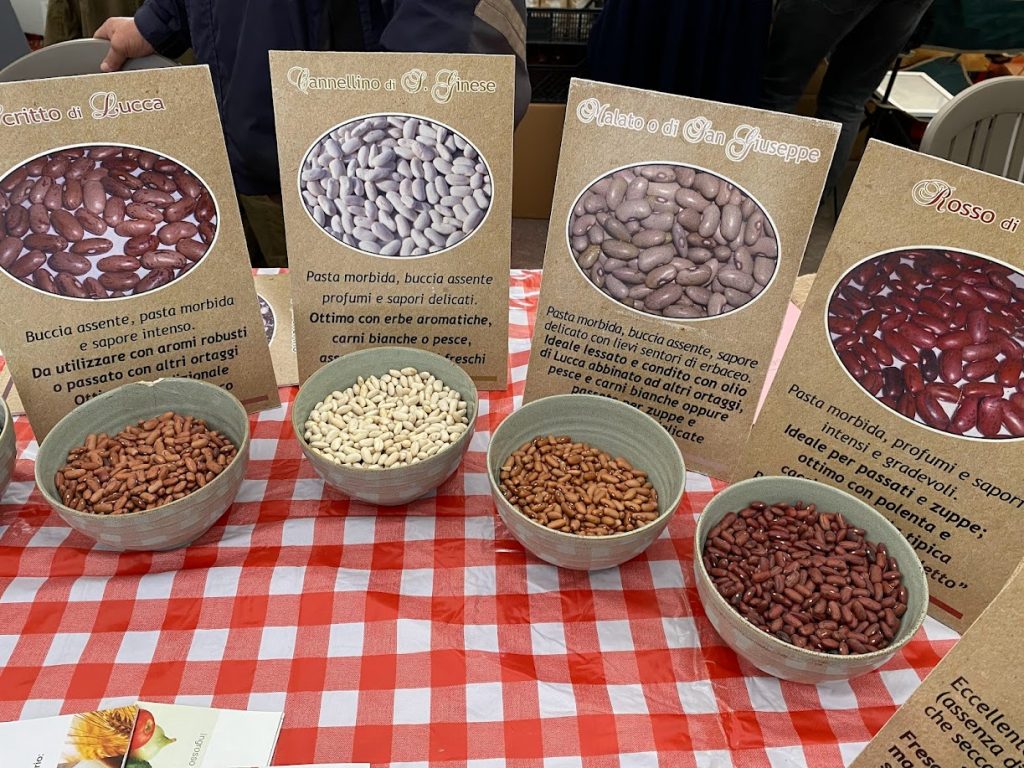by Jenny MacGillivray, Glasgow Community Food Network
From 27th – 29th October 2023, I was lucky enough to be invited to Slow Beans, a conference on legumes and pulses organised by Slow Food International. It was held in Cappannori area in Tuscany, an area of Italy famous for its beans, including Sorana, Zolfino and Rosso di Lucca.

On the first day, we heard talks from Meatless Monday and the University of Pisa, at a Frantoio (communal olive oil processing centre) in Cappannori. Meatless Monday is a campaign which started in New York, to promote more vegetarian options in school meals. They have produced a number of useful resources and marketing materials around beans, and have been informed by a great deal of good nutritional research into beans by the John Hopkins University.
The children also receive ‘real food education’ where they learn to grow, appreciate and cook real food.
The following day was exciting as it was the Slow Beans market day at Bargo. We got to meet producers from all over Europe, including German farmers growing edamame and soybeans, Latvian big grey peas, Sicilian black chickpeas, lupin growers, legume based pasta and more. The farmers were rightly very proud of their produce and were keen to show it off and talk about it.

Then we had some workshops in a lovely old Tuscan farmhouse from Slow Food Europe, who told us about their lobbying of the European Parliament to transform the food system to make it good, clean and fair. One action in particular is to get new laws regulating the use of pesticides in the EU. We also heard more from Meatless Mondays, the Global Bean Project and the Good Lobby, who talked to us about campaigning and activism.
That night it was a trip out to Lucca, where we found a Slow Food restaurant waiting for us, with a specially prepared menu featuring 8 courses of beans, meat, cheese, rabbit, pasta and more beans.
The following day it was back on the market. It was also the ‘Fagiolidi’, or bean olympics, which meant sampling up to 10 different bean dishes and rating them according to a fairly complex rating system! This was a challenging task but somehow I managed it, washing the beans down with a couple of glasses of tasty local beer.

Later we celebrated the winners. And then back to the hotel, for a quick breather, then a dinner of…..More beans!!
The following day, on my way home, I reflected that on this trip I saw more different types of beans on this trip than I have ever seen before in my life. I have come to appreciate the huge diversity of beans, and the important role they play in almost every culture in the world. They are highly nutritious and can reduce or replace meat in many diets. They fix nitrogen from the atmosphere and help to fertilise the soil. They can help to tackle climate change by reducing the need for artificial nitrogen fertilisers, and can play a key role in crop rotations. There are many things however, I am still keen to find out, for instance, can anyone tell me the difference between a pea and a bean? And what on earth does broad bean whisky taste like?

